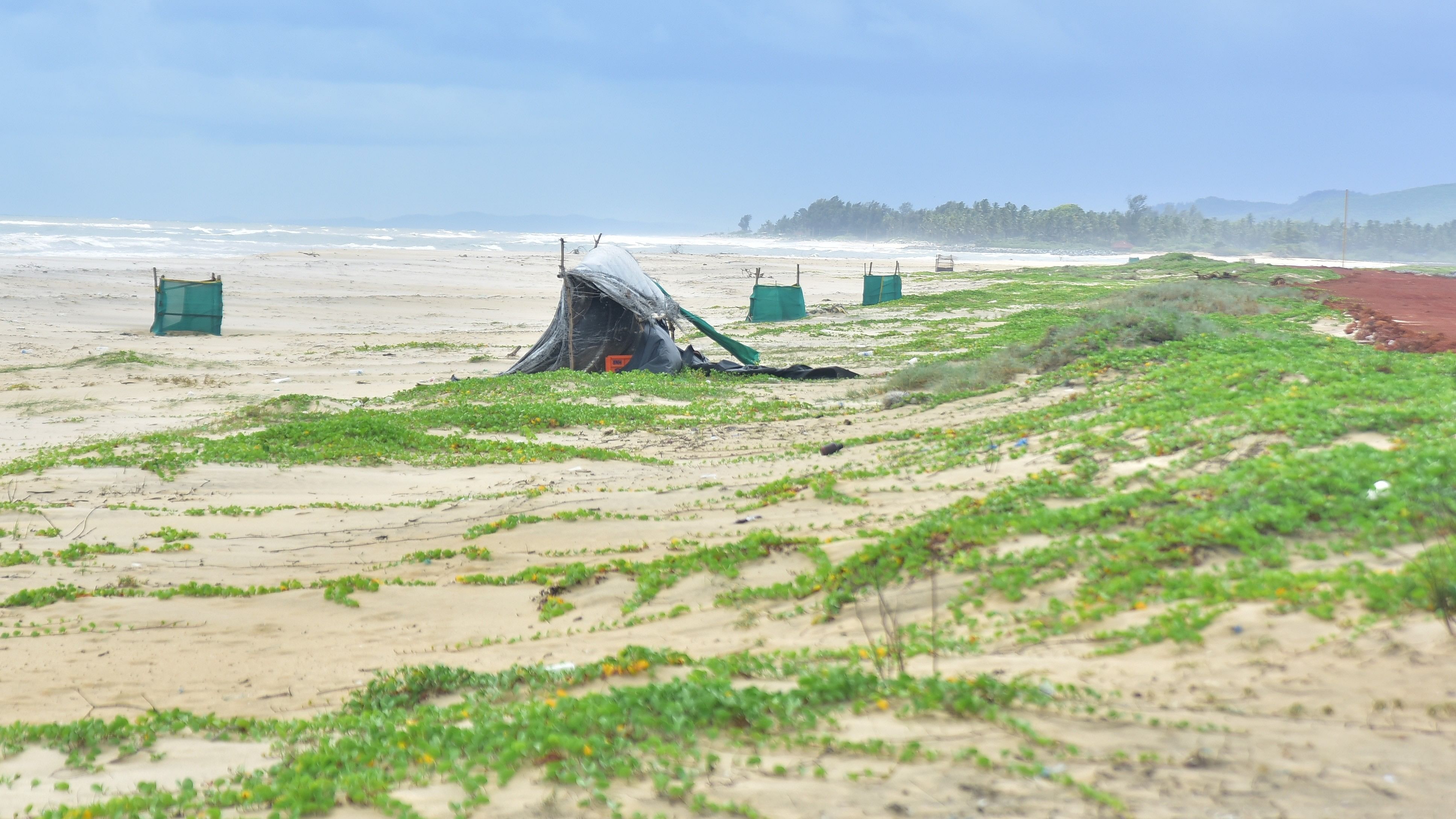
Honnavar Port.
Credit: DH Photo
Olive ridley turtles may be the most abundant of sea turtle species, but that does not make them any less vulnerable. In fact, turtles are protected under Schedule 1 of the Wildlife Protection Act (1972), which means they enjoy absolute protection with maximum punishment being prescribed for violations. However, the Karnataka government appears keen to go ahead with a private port in Honnavar of Uttara Kannada district, known to be a breeding ground for olive ridley turtles, negating all conservation efforts of the past few years which yielded good results. Local fishermen have for long been waging a war against the port as they fear it will have a cascading impact on the ecologically sensitive Sharavathi estuaries and the beach line, where turtles lay their eggs. According to studies, Karnataka, with a relatively small coastline of about 250 km, has only one species of turtles—olive ridley—frequently visiting its beaches. Due to a thriving clandestine trade, the sale of eggs has increased, while the density of breeding sites has come down, posing a big threat to the species.
What has led to fresh concerns among environmentalists is the Karnataka government’s decision to asphalt a mud road leading to the proposed port to create better connectivity. This has shocked the local population, particularly fishermen, who had believed that the project had been put on the back burner, considering the environmental questions involved. The Karnataka State Coastal Zone Management Authority (KSCZMA) has approved the black topping of the road, which is a clear indication that work on the port will commence soon. Marine biologist and activist Prakash Mesta, in the forefront of the protests, has questioned the logic behind the new private port as there are already three major ports on the 200 km stretch, with two of them not even operating at 50% of their capacity. Incidentally, the port is yet to receive environmental clearance from the National Green Tribunal. However, Captain C Swamy, in-charge director of the Karnataka Ports and Inland Water Transport Department, insists that the government will go ahead with the project,
and asks why Karnataka cannot have four major
ports when Gujarat boasts of 49 operational and 209 minor ports.
While there is a need to strike a balance between our economic and ecological concerns, the government cannot ignore the perils of meddling with the environment, especially in sensitive zones. It would thus be wise to put the project on hold, until all stakeholders—local fishermen, environmentalists, and experts—are consulted, and a solution acceptable to all is arrived at.